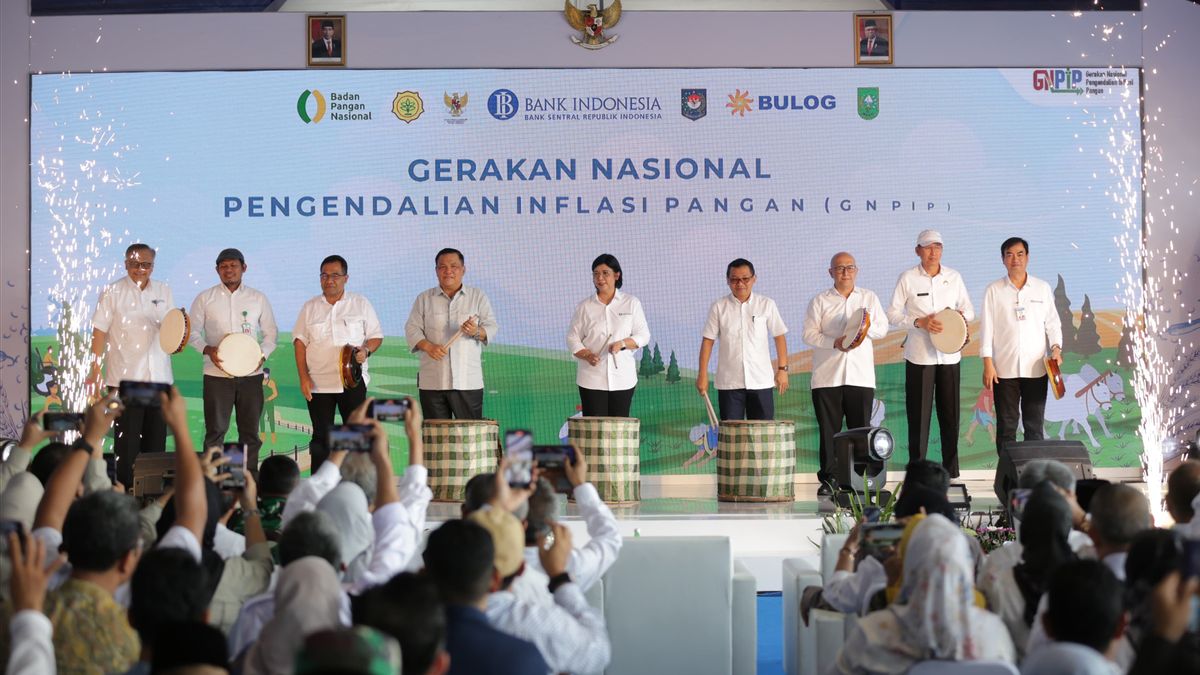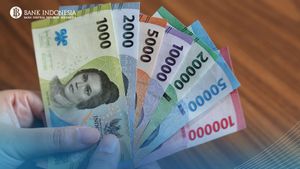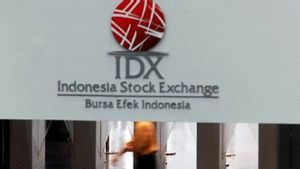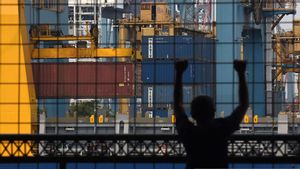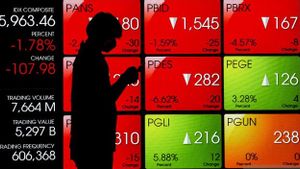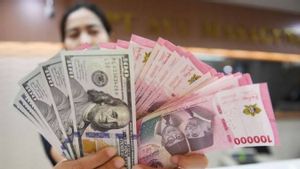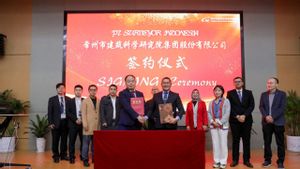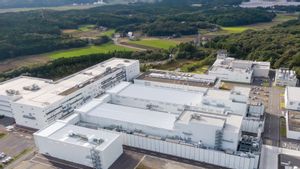JAKARTA - The Indonesian economy remains solid amid various challenges of global uncertainty.
In the first quarter of 2024, Indonesia's economy grew 5.11 percent (yoy).
This achievement is supported by controlled inflation realization in the national target range of 2.5 percent plus minus 1 percent, which is 3.00 percent (yoy) in April 2024.
Therefore, the government continues to be committed to creating strong economic growth and a stable inflation rate, one of which is by keeping people's purchasing power strong.
Deputy for Macroeconomic and Financial Coordination of the Coordinating Ministry for Economic Affairs Ferry Irawan conveyed that the affordability of basic goods prices is an important aspect in maintaining purchasing power, especially for the lower middle class.
Ferry conveyed that one of the efforts made to achieve this was the importance of strengthening coordination synergies in the context of controlling inflation, especially food inflation.
"Inflation control in the Sumatra Region is strategic, especially in securing supply and smooth distribution in the midst of natural disasters that occur in a number of food production centers," he said in his statement, quoted on Sunday, May 19.
Ferry said it was agreed that several strategic steps would be taken in the future to maintain price stabilization, especially food prices, namely through strengthening the provision of agricultural facilities and infrastructure through cross-ministerial/institutional synergies (K/L) and relevant stakeholders in the regions.
Furthermore, the acceleration of improvement of agricultural infrastructure, especially in areas affected by floods and eruptions, as well as strengthening the management of planting patterns supported by contract farming cooperation between Bulog/BUMD Pangan/BUMDes and farmer groups.
Ferry said that there would also be strengthening of cooperation orchestration between regions (KAD) to ensure the availability of food supplies, especially in the nett consumer area.
Another step is to increase fiscal and non-fiscal support to strengthen agricultural facilities and infrastructure for food security in the regions amidst the high risk of food price fluctuations.
"The government currently supports the expansion of access to financing to increase farmers' production capacity, including through the agricultural sector KUR scheme and alsintan business credit (KUA)," said Ferry.
Ferry ensured that price affordability, efforts to maintain purchasing power were also carried out by encouraging middle class consumption, and this would be a sustainable policy.
"The policy is not only focused on the lower class, but also ensures that the middle class people have incentives to continue to increase consumption even though there is economic uncertainty," he explained.
SEE ALSO:
He conveyed that a number of stimuli given to the middle class were the property sector DTP VAT for commercial homes, low-income houses and poor people's homes.
In addition, VAT DTP for the motor vehicle sector, especially electric motorized vehicles based on batteries.
As well as strengthening commitments to distribute agricultural sector financing, handing over seeds, agricultural production facilities to farmer groups, organizing low-cost markets, and releasing cheap mobile market cars.
The English, Chinese, Japanese, Arabic, and French versions are automatically generated by the AI. So there may still be inaccuracies in translating, please always see Indonesian as our main language. (system supported by DigitalSiber.id)
